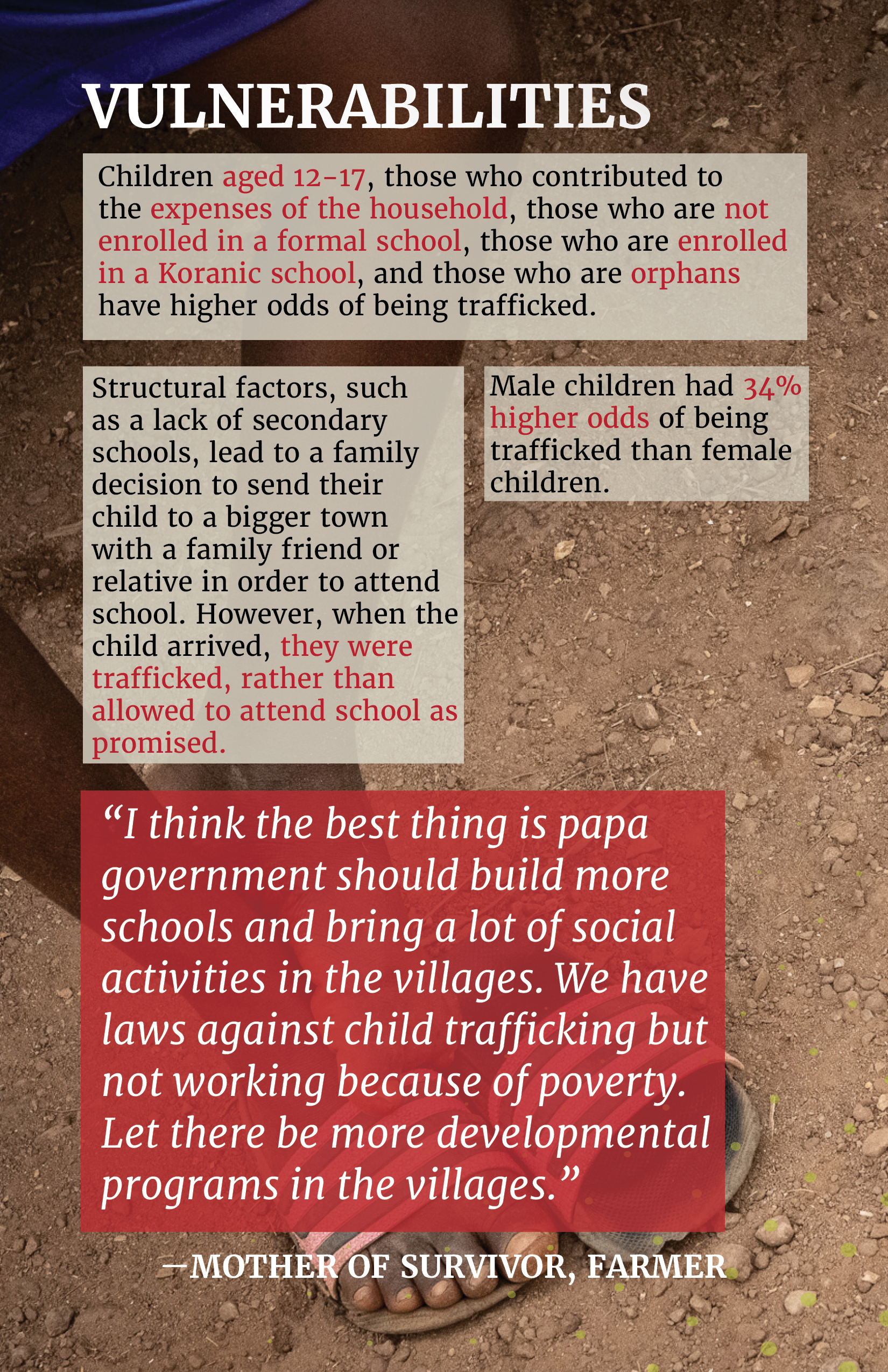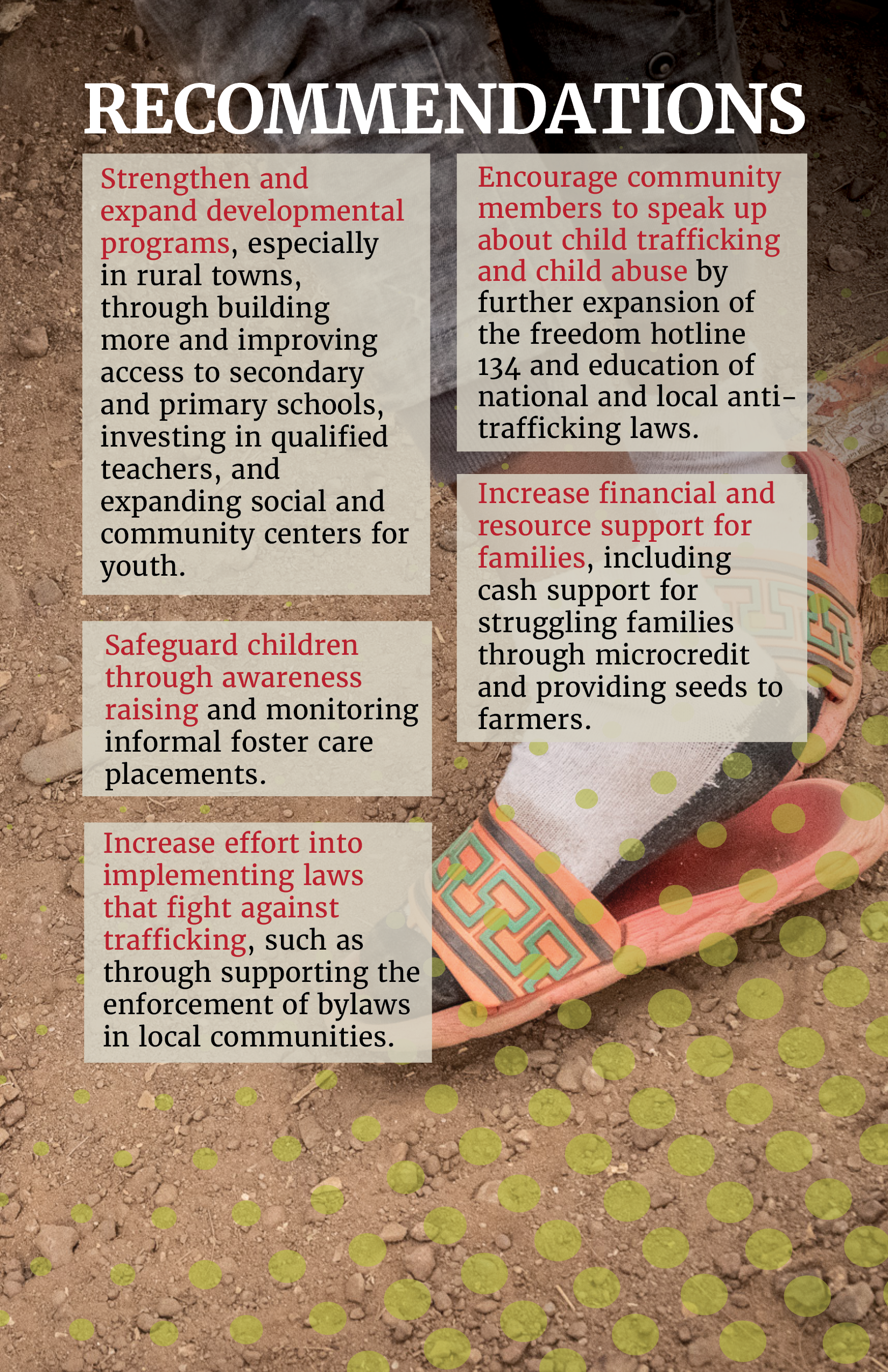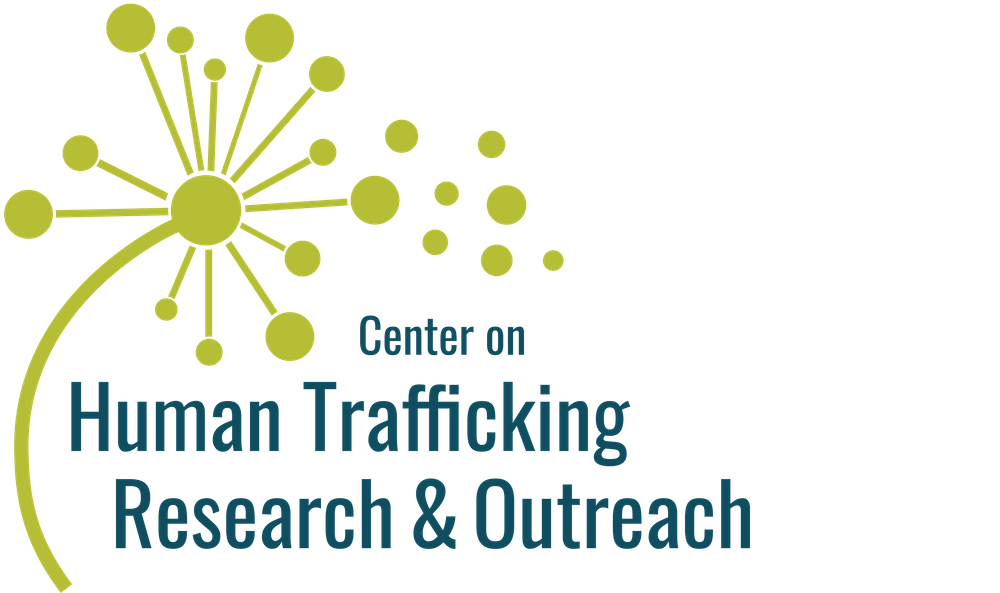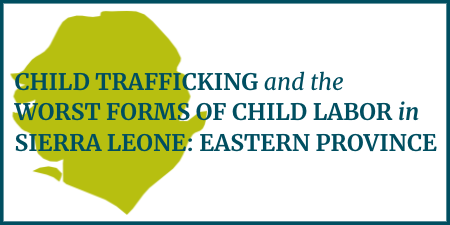Child Trafficking and the Worst Forms of Child Labor in Kambia, Sierra Leone

An estimated 34% of children aged 5 to 17 in Sierra Leone’s Kambia District have experienced
child trafficking and 40% have experienced child labor, according to new research
from the African Programming & Research Initiative to End Slavery (APRIES) at the
University of Georgia's Center on Human Trafficking Research & Outreach (CenHTRO).
Download the Report (PDF) |
Download a Summary (PDF) |
Trafficked children were commonly forced to work as domestic servants, in agriculture,
or as street vendors, often for little or no pay, according to the study, “Child Trafficking and the Worst Forms of Child Labor in Kambia, Sierra Leone,” (PDF) funded by the U.S. Department of State Office to Monitor and Combat Trafficking
in Persons. 
Children were also made to engage in hazardous labor activities, like carrying heavy loads or being exposed to extreme heat, cold, or humidity.
Survivors described being exploited in informal foster care placements, known as menpikin,
where they were made to perform domestic duties outside their home. They were forced
to sell water on the street for lengthy hours and without compensation, while other
children in the household were allowed to attend school. Some children were forced
to work to pay for school fees.
Household surveys, key informant interviews, and focus group discussions contributed
to the research in Kambia, a district in the northwest of Sierra Leone that borders
Guinea. This new report extends research published by APRIES in 2022 that measured child trafficking and child labor in Sierra
Leone’s Eastern Province, demonstrating that both are prevalent across much of the country.
 |
 |
CenHTRO/APRIES uses its baseline research to inform interventions in Sierra Leone
aimed at reducing the prevalence of child trafficking, communicating and collaborating
regularly with the Government of Sierra Leone, district leadership, and community
groups. Alongside partners World Hope International, the United Nations Office on
Drugs and Crime, and Antobert Consultancy, CenHTRO/APRIES works to prevent trafficking,
protect survivors, and prosecute traffickers in Sierra Leone. For more information,
visit cenhtro.uga.edu.


